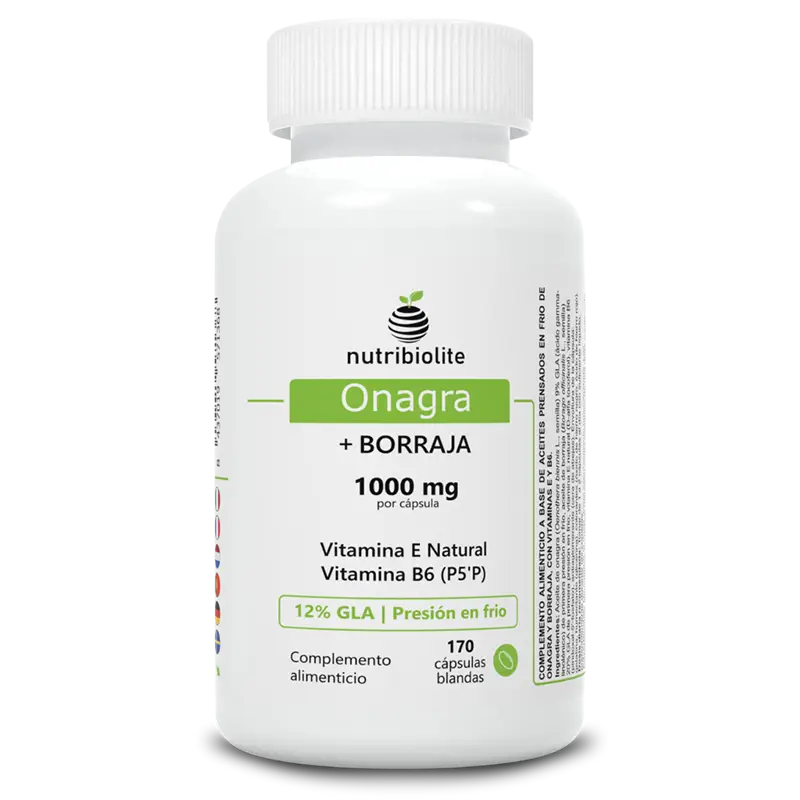The study focused on women aged 15 to 50 years with premenstrual symptoms that affected their daily lives. For many, those days before menstruation mean less productivity, more conflict and a sense of emotional out-of-control. The practical message is clear: certain nutrients, in the context of good habits, can support mood stability in this phase of the cycle.
Study shows some nutrients are associated with fewer emotional symptoms of premenstrual syndrome
The systematic review included 31 randomised controlled trials, the type of study that compares intervention and control groups. A total of 3254 women participated, taking different nutrients or dietary changes for between one and six months.
The authors grouped the interventions into vitamins, minerals, fats, carbohydrates and other approaches. Looking only at psychological symptoms, such as mood swings, irritability, anxiety or sadness, the results were consistent for three nutrients, vitamin B6, calcium and zinc, which were repeatedly associated with a significant reduction in these symptoms versus placebo.
In contrast, evidence was insufficient or inconsistent for other components, such as vitamin B1, vitamin D, magnesium, dietary fatty acids or specific dietary patterns. In addition, only one of the trials had a low risk of bias, so the authors insist that more robust studies are still needed before definitive recommendations can be made.
Vitamin B6 is involved in serotonin synthesis and may modulate cyclic emotional response
Vitamin B6, also called pyridoxine, acts as a cofactor in many enzymatic reactions. One of the most relevant to mood is the transformation of tryptophan, a dietary amino acid, into serotonin, a key neurotransmitter for emotional regulation and feelings of well-being.
During the luteal phase of the menstrual cycle, oestrogen and progesterone levels fluctuate and the signalling of serotonin and gamma aminobutyric acid, known as GABA, which is an inhibitory neurotransmitter associated with calm and relaxation, is altered. Women with premenstrual syndrome appear to be more sensitive to these changes, leading to irritability, anxiety or sadness.
In this context, having sufficient vitamin B6 helps the enzymes that make serotonin to function normally. The reviewed study includes trials in which B6 supplementation was associated with fewer emotional symptoms and better overall PMS scores, always within safe ranges and without exceeding prolonged high doses that could cause adverse effects.
Lifestyle habits that support emotional balance in the premenstrual phase
Premenstrual syndrome does not depend on one nutrient alone. The study says that Western-style eating patterns, with excess sugars and saturated fats, are associated with more inflammation and a higher likelihood of severe symptoms, while a diet close to the Mediterranean pattern is associated with lower risk.
In practice, priority should be given to fruit, vegetables, legumes, nuts, whole grains and healthy fats such as olive oil. These foods provide B vitamins, minerals such as magnesium and zinc, antioxidants and fibre, which support both hormone regulation and gut health, which is closely related to mood.
Regular exercise, including brisk 30-minute walks on most days, is associated with better stress regulation and better perception of premenstrual symptoms. A sufficient night’s rest and sensible stress management, with techniques such as deep breathing or short breaks during the day, complete a favourable environment for the hormonal cycle to express itself with fewer emotional ups and downs.
Vitamin B6: Key Component in Nutribiolite’s Evening Primrose and Borage Oil Vitamin Complex
The study specifically highlights the role of vitamin B6 in modulating the psychological symptoms of PMS. Evening Primrose and Borage Oils + Natural Vitamin E and Vitamin B6 incorporates this vitamin in a formulation combining evening primrose and borage oils with vitamin E and B6, aimed at supporting physiological processes related to female hormonal balance and cyclical well-being.
The presence of vitamin B6 in the formula connects with the evidence reviewed, as it contributes to the normal metabolism of neurotransmitters involved in mood and stress response. Thus, the B6 in the product is integrated into the same biochemical pathway that the study identifies as relevant to premenstrual emotional symptoms.
Evening primrose and borage oils provide essential fatty acids from the omega-6 family, such as gamma linolenic acid, which the body uses to produce messengers related to inflammatory response and hormone balance. Vitamin E acts as a fat-soluble antioxidant and protects these fatty acids from oxidation, helping them to reach the tissues where they are needed in good condition.
Together, Evening Primrose and Borage Oils + Natural Vitamin E and Vitamin B6 offers a combination of functional lipids and micronutrients that aligns with the physiology described in the scientific literature, particularly the role of vitamin B6 in serotonin synthesis and the subjective experience of premenstrual syndrome. It is intended for adult women who already take care of their diet and physical activity and want additional physiological support in the days leading up to menstruation.

Supplementation with evening primrose and borage oils, vitamin E and vitamin B6 to support female hormonal balance and cyclical well-being.
Final summary of the study and the role of daily habits
The review in Nutrition Reviews suggests that vitamin B6, together with calcium and zinc, is associated with an improvement in the psychological symptoms of premenstrual syndrome in women of childbearing age. At the same time, it shows that the evidence for other nutrients is still limited and that more robust and homogeneous trials are needed.
For daily life, the message is to combine a nutrient-rich diet, regular physical activity, good sleep hygiene and, if desired, the use of supplements that respect natural physiology, such as Evening Primrose and Borage Oils + Natural Vitamin E and Vitamin B6. The aim is to accompany the hormonal rhythms of the menstrual cycle and reduce the emotional impact of these days of the month.
This content is informative and does not replace the advice of a health professional.
Frequently asked questions
What did the study on vitamin B6 and premenstrual syndrome show?
The review identified that vitamin B6 supplementation was consistently associated with a reduction in psychological symptoms of PMS, such as irritability, sadness or anxiety, versus placebo, although the authors call for more high-quality studies.
Who might be interested in Evening Primrose and Borage Oils + Natural Vitamin E and Vitamin B6?
It is intended for adult women of childbearing age who experience emotional and physical discomfort in the days leading up to menstruation and who are already taking care of their diet, exercise and rest, and are looking for additional physiological support focused on essential fatty acids and vitamin B6.
Does the vitamin B6 in this supplement work as in the studies?
The trials reviewed use vitamin B6 as a nutrient involved in the synthesis of serotonin and other neurotransmitters. The vitamin B6 in Evening Primrose and Borage Oils + Natural Vitamin E and Vitamin B6 is integrated into these same biochemical pathways as part of a balanced diet.
What role do evening primrose and borage oils play in premenstrual well-being?
Evening primrose and borage oils provide essential fatty acids from the omega-6 family, which are involved in the synthesis of messengers related to inflammatory response and hormonal balance. In combination with vitamin E and B6, they offer a comprehensive approach to processes that influence how the cycle is experienced.
Is it enough to take a supplement to improve premenstrual syndrome?
Supplements are a support, not a substitute for healthy habits. Evidence indicates that dietary quality, regular exercise, stress management and adequate rest are basic pillars for modulating premenstrual symptoms, and that specific nutrients can add to this framework.
















